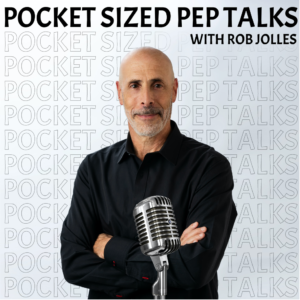 I’ve never been a fan of reality shows, or as I call them, “bad actors acting badly,” but oddly enough, I’ve always been a fan of the first one ever produced. Although some seasons are better than others, my allegiance has never waivered. I’m talking about the social experiment that is called, “Survivor.” The lessons are endless, but for the sake of this blog, let’s just focus on one for now. I want to talk about alliances, and I want to make you aware of three critical lessons.
I’ve never been a fan of reality shows, or as I call them, “bad actors acting badly,” but oddly enough, I’ve always been a fan of the first one ever produced. Although some seasons are better than others, my allegiance has never waivered. I’m talking about the social experiment that is called, “Survivor.” The lessons are endless, but for the sake of this blog, let’s just focus on one for now. I want to talk about alliances, and I want to make you aware of three critical lessons.
- There is no avoiding it. Many people think when they work with others, it’s not necessary to be in an alliance. It makes me laugh when I think back to season one of Survivor; There was an outrage when a few of the participants formed an alliance (gasp!) Coincidently, of the sixteen participants who began this social experiment, the three individuals that formed the alliance were the final three standing. The person who put the alliance together won the million dollars.
Watch Survivor and you’ll notice how fast these alliances are formed… much like the alliances that are formed with the people you work with. I am not referring to a clique – but a true alliance. There is a difference: A clique is an exclusive club that is often brazen in its inclusion and exclusion of others, while an alliance is much more subtle. Are there alliances where you work? You bet.
It would be easy to say, “I don’t need to be in an alliance.” I say you are not only wrong, but by avoiding an alliance, you run the risk of sending out dangerous signals to others. Watch “Survivor” and you’ll see that during seasons one and two, subjects strategically avoid alliances. They often do it for some noble cause, but the reality is they are the first to be removed. They are seen as being aloof and not team players. You are naïve if you think that you are above an alliance.
- Choose wisely. This season’s social experiment provided us with a great reminder about the importance of choosing wisely. Two of the nicest woman you will ever meet quickly formed an alliance with an individual that appeared to be a good match, although they barely knew him. It turned out he was a loose cannon. By shear association, they were the first two removed from the experiment. As with most loose cannons, he is currently still in the game. Sound familiar? Consider these two potential alliance scenarios:
- This is a person who you click with right off the bat. He/she is friendly, nice, and you seem to have a lot in common. You aren’t sure who this someone might be connected to, or why that would even be important. You appreciate someone kind enough to reach out to you.
- This is a person who you don’t click with right off the bat. He/she is not necessarily friendly, or nice, and doesn’t have a lot in common with you. However, this individual is well respected within the organization. Dare I even say…. This person is well connected.
I vote for the second option and it isn’t even close. I can practically hear the uproar: “Rob, you are a sell out!” “Rob, you are telling me to befriend and form alliances with someone I don’t necessarily like?” Yes, that is exactly what I’m saying, and no, I’m not a sell out. If I were still in my twenties, I would tell you about my friendships, my principles, and never compromising on either.
Oscar Wilde once wrote, “Experience is a name everyone gives to their mistakes.” Well, I have my share of experience in this area, and I am telling you the wrong alliance is dangerous, and choosing an alliance based solely on friendship and or shared likes and dislikes is both an instinct and a mistake. It’s not a question of compromising on your values; it’s the reality of understanding the ramifications to the kind of people you choose to align with.
Back to our social experiment: Guess what happens to good people who align with individuals who struggle within the tribe… I mean, the corporation? Predictably, they scramble to convince everyone that they never really shared the views of the individual, and they are now aligned with everyone else. And, they are often the next to go.
- Remain loyal to your alliance. The only thing worse than someone who picks the wrong alliance is someone who flip-flops from one alliance to the next. It’s apparent to everyone, and that kind of behavior will leave you with the title, “not trustworthy.” Is there a worse professional title to be labeled?
Do I really need to take you back to our social experiment and tell you what happens to those who are not loyal? It isn’t an immediate exit, but it’s a guarantee of failure. That’s because once someone is labeled as “not trustworthy,” it is nearly impossible to change it. Once trust is broken, it cannot be repaired.
So, there’s two ways to view this week’s BlArticle™. The first view would be to miss the message and walk away thinking, “Rob told me that the only way to succeed is for me to suck up to someone I don’t necessarily like.” The other view is to walk away and remember that the professional relationships you build matter… a lot. They matter to you, and they matter to those around you. Understanding this, choosing your alliances wisely, and remaining loyal to the choices you make will help you succeed in the social experiment I call “working with others.”
 I’m proud to announce I’ll be conducting a Professional Speakers Workshop on June 3rd, 4th, and 5th in Washington, D.C. The program will cover:
I’m proud to announce I’ll be conducting a Professional Speakers Workshop on June 3rd, 4th, and 5th in Washington, D.C. The program will cover:
- The business side of things. You can have the greatest keynote, supported by the greatest book out there, but no one will ever know if no one is hiring you to deliver. I plan on spending a day on the business side of this profession, covering a wide array of topics including networking, bureaus, maximizing the opportunities at hand, converting keynotes to workshops, proposal writing, retainers, sales techniques and more.
- The delivery side of things. It’s often the little things that separate amateurs from professionals, and it’s more than just one or two little things. It’s a series of simple, yet crucial, things. I plan on spending a full day on a barrage of underused, high-value delivery tips.
- The performance side of things. Talking about speaking can only take us so far. I’m limiting the program to ten attendees because I want to see you speak, and provide individual feedback. You will be presenting twice during this program; once near the beginning, and once more on day three, where you’ll be able to incorporate many of the things you learned and receive feedback.
If this sounds like a program you would be interested in attending, email Training@Jolles.com – let me know, and I’ll send you information that covers the complete three-day agenda, the logistics, and the costs.
 What do you get when combine energy, enthusiasm… and great content? You get a “Pocket Sized Pep Talk,” and there are now over 275 of them! Tune in and you’ll hear a collection of conversations, interviews, and even some BLArticles® that are sure to teach, motivate, inspire, and oh yes; entertain! https://podcasts.apple.com/us/podcast/pocket-sized-pep-talks/id1497772972
What do you get when combine energy, enthusiasm… and great content? You get a “Pocket Sized Pep Talk,” and there are now over 275 of them! Tune in and you’ll hear a collection of conversations, interviews, and even some BLArticles® that are sure to teach, motivate, inspire, and oh yes; entertain! https://podcasts.apple.com/us/podcast/pocket-sized-pep-talks/id1497772972

Great advice. I learned this lesson the hard way forming an alliance to advocate for research on the impact of persistent /chronic Lyme disease on pregnant women and children.
You are not alone. Lots of us learn these lessons the hard way, including me. They don’t teach this in schools… but they should! Thanks for posting Bruce.
Rob, this is excellent! As I reflect on my career, I realize how powerful my alliances were. Thank you for sharing this lesson and reminder.
You got that right. We can both attribute the major breaks we got in business to carefully kept alliances. Thanks for posting Neil!